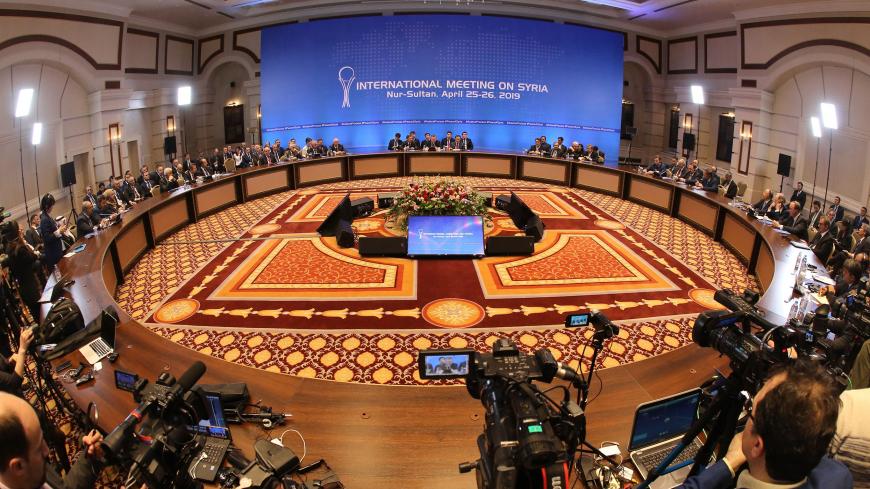The 13th round of talks in the Astana process, launched by Russia, Iran and Turkey to clear the way for the Geneva peace negotiations on the Syrian crisis, was muddled through last week amid lingering differences on a long-anticipated constitutional committee. Although the escalating clashes in rebel-held Idlib topped the agenda of the talks in Kazakhstan’s capital, now called Nur-Sultan, there was strong expectation that the constitutional committee would be finally announced. Ankara spoke of progress toward the formation of the body, as some sticking points between the Syrian government and Turkey, which acts as a spokesman for the opposition, remained unresolved, deferring the matter to the Sept. 11 summit of the Russian, Iranian and Turkish leaders. Disagreements over the composition of the committee were largely resolved, but the rules on how it will function continue to be the subject of discord.
Ahead of the meeting, Turkish Foreign Minister Mevlut Cavusoglu had stressed joint efforts toward “declaring the formation of the committee.” Ahmad Toma, who represents the armed opposition, had spoken of “positive developments,” saying that an announcement on the committee’s formation “will come soon.” Speaking July 31 in Istanbul, he blamed the delay on Damascus, saying, “The regime kept putting forward unacceptable conditions. It demanded the chairmanship and a two-thirds majority in the committee, but that was not accepted.”



